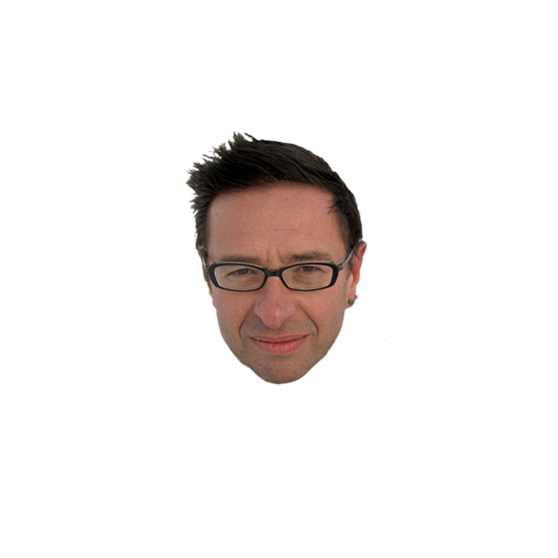Welcome to Waldemar’s World
Waldemar Januszczak is Britain’s most distinguished art critic. Formerly the art critic of The Guardian, he now writes for The Sunday Times, and has twice won the Critic of the Year award. Renowned for his feisty opinions, Waldemar is also a film maker of television arts documentaries.
Life
Waldemar was born in Basingstoke, Hampshire, to Polish refugees who had arrived in Britain after World War II. His father, a policeman in Poland, whose job had included exposing Communists, found work as a railway carriage cleaner and died, aged 57, when a train ran over him at Basingstoke station. His widow, then aged 33, found work as a dairymaid. Waldemar was one year old.
After a childhood in Reading, during which he developed his addiction to the town’s exciting football club, Waldemar attended the Divine Mercy College, a school for the children of Polish refugees which the Congregation of Marian Fathers had set up at Fawley Court, Henley-on-Thames. It was there that he became an atheist and began worshipping art instead.
Career
After studying History of Art at Manchester University, Waldemar had his first piece of art criticism published in The Guardian on April Fool’s Day 1977. The joke has now lasted over 30 years making him the longest serving art critic in the national press.
Between 1979-1987, he was The Guardian’s chief art critic, and then briefly became its literary editor, an undistinguished career move whose highlight was Waldemar’s decision not to bother reviewing a new novel called The Satanic Verses that had been sent in by Salman Rushdie. Having speed-read a few pages, Waldemar decided it wasn’t worth the effort. A decision by which he still stands today.
His features editor at the time, Richard Gott, was later outed as KGB agent of influence. Waldemar, who travelled to Moscow with Richard on a glorious two week writing and drinking assignment, never suspected a thing. But the experience meant he was later able to identify the MI6 operatives working at The Guardian. Some of whom are still there.
In a parallel career in broadcasting, Waldemar was one of the founding presenters of the Late Show on BBC 2, for which he pioneered the buttoning up of the top button of his shirt. He also presented Kaleidoscope on Radio 4, Meridian on the BBC World Service, and was a regular pannelist on Critic’s Forum on Radio 3. He has since popped up pretty much everywhere where a radio dial can reach.
In 1989, Waldemar took up the post of commissioning editor for arts at Channel 4 television, a position he was to hold for seven years. His successes included putting The Turner Prize on television and creating the J’Accuse strand. Some say those were also his failures. His weekly series, Without Walls, was regularly controversial and won many broadcasting awards including Baftas, Emmys, RTS awards, and those see-through statuettes that you get from Canada when you do well at Banff. His proudest achievement was commissioning a Without Walls special with the dying playwright, Denis Potter, that features regularly in lists of key television moments.
In 1993, Waldemar took over music as well at Channnel 4, and put the Glastonbury festival on television before starting yearly broadcasts from Glyndebourne and creating the White Room. While at Channel 4, he was a key member of the committee charged with finding an architect for C4’s new headquarters in Horseferry Road, and will, if you pay him enough, spill many beans on the final selection of Richard Rogers.
In 1993, Waldemar also faced up to fact that he could not live happily without writing about art, and became the art critic of The Sunday Times, a position he still holds. He has since gone on to write, present, and direct numerous films about art, and wishes it to be known that directing art films is a lot easier than people make out.
Waldemar has been described as, “a passionate art lover, art critic and writer. His presentation style is casual but informed, enthusiastic, evocative and humorous. He bimbles about on our TV screens, doing for art what David Attenborough has done for the natural world,” and someone who acts out of “a refusal to present art as elitist in any way. He makes it utterly accessible and understandable.” Waldemar wishes to thank whoever said that, and admits that it brought a tear to his podgy little Polish eye.
Films
Waldemar has been making television art films for many years, as both presenter and director. Since 1997, he has run his own production company ZCZ Films. His films include:
Handmade in Bolton (BBC, 2019)
Big Sky, Big Dreams, Big Art: Made in the USA (BBC, 2018)
Mary Magdalene: Art’s Scarlet Woman (BBC, 2017)
The Renaissance Unchained (BBC, 2016)
Holbein: Eye of the Tudors (2015)
Rubens: An Extra Large Story (2014)
Rococo: Travel, Pleasure, Madness (BBC, 2013)
The Dark Ages An Age Of Light (BBC, 2012)
William Dobson The Lost Genius Of British Art (BBC, 2011)
Art Of The Night (BBC, 2011)
Impressionists Painting And Revolution (BBC, 2011)
Baroque! From St Peter’s to St Paul’s (BBC, 2009)
Manet The Man Who Invented Modern Art (BBC, 2009)
Ugly Beauty (BBC, 2009)
The Sculpture Diaries (Channel 4, 2008)
Toulouse-Lautrec: The Full Story (Channel 4, 2006)
The Michelangelo Code: Lost Secrets of the Sistine Chapel (Channel 4, 2005)
Gauguin: The Full Story (Channel 4, 2005)
Paradise Found (Channel 4, 2005), a pictorial history of Islamic art
Vincent: The Full Story (Channel 4, 2004)
Every Picture Tells a Story (Channel 5, 2003/4)
Picasso: Magic, Sex And Death (Channel 4, 2000), by the artist’s friend and biographer, John Richardson
The Truth About Art (Channel 4, 1998)
